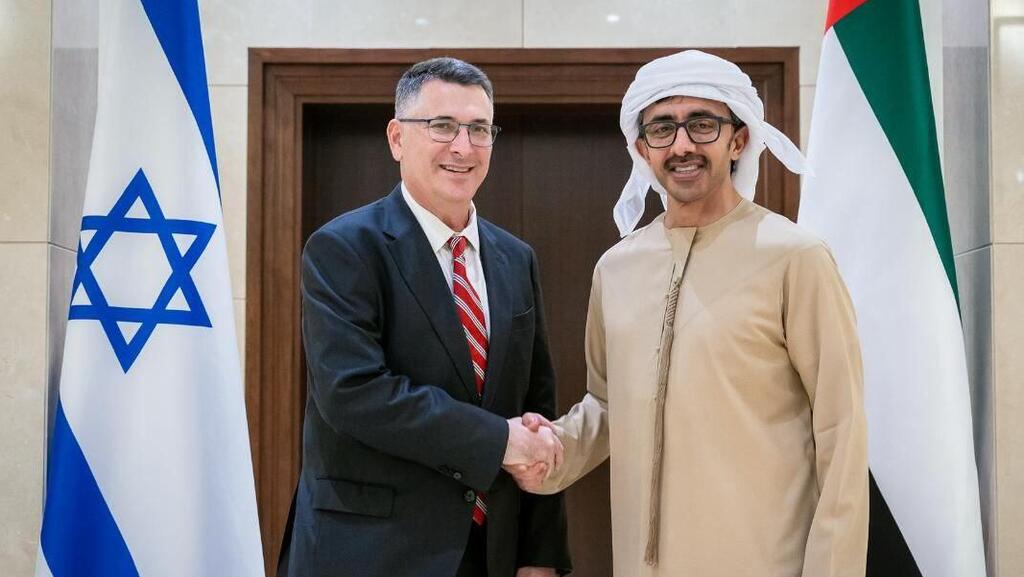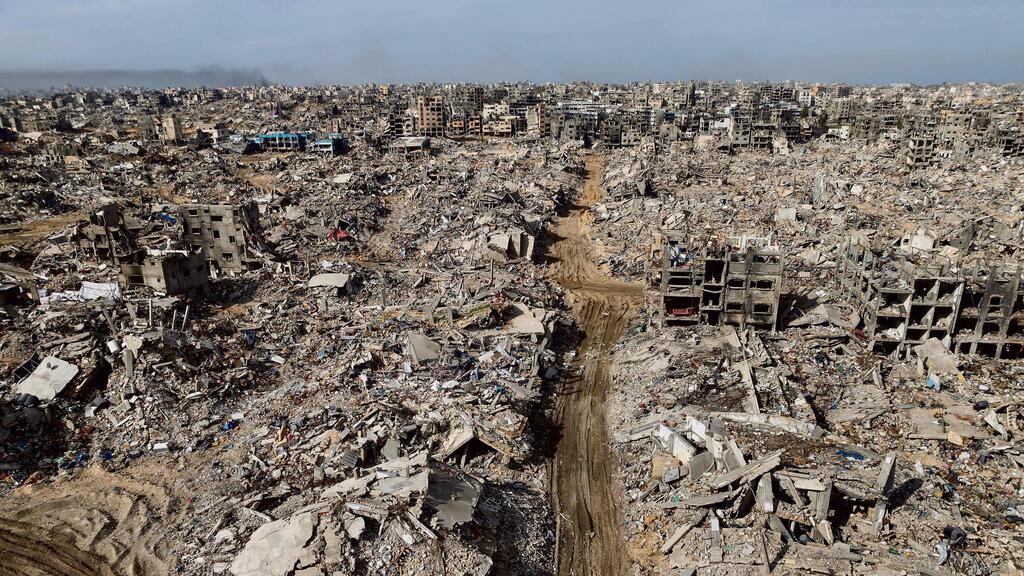Getting your Trinity Audio player ready...
Foreign Minister Gideon Sa’ar met with his Emirati counterpart, Sheikh Abdullah bin Zayed Al Nahyan, in Abu Dhabi on Tuesday evening. The meeting, kept under wraps until it started, marks the second public visit by an Israeli minister to the UAE since the onset of the war and the first by a foreign minister. It follows a series of high-level secret meetings by Israeli officials during the war.
The two ministers are currently meeting at a palace in Abu Dhabi, just hours after Reuters reported on behind-the-scenes talks involving the UAE and the United States about managing Gaza in the aftermath of the war. According to the report, the UAE and other nations, alongside the U.S., are considering a temporary governance role in Gaza until a reformed and "strengthened" Palestinian Authority can assume control.
In a statement, Sa’ar’s office confirmed his visit was at the invitation of Sheikh Abdullah, adding that the discussions are focused on “regional developments and bilateral relations between the two countries.”
The UAE’s Ministry of Foreign Affairs issued a statement saying that “Sheikh Abdullah bin Zayed Al Nahyan met with Israeli Foreign Minister Gideon Sa’ar. During the meeting, the two discussed regional developments, particularly the worsening humanitarian crisis in Gaza and international efforts to secure a stable cease-fire.”
Conditions for post-war Gaza governance
The Reuters report, based on conversations with 12 diplomats and Western officials, outlines a proposal for temporary governance of Gaza involving the UAE, the U.S., and other nations. This governance would address administrative, security and reconstruction efforts until control could be transferred to a reformed Palestinian Authority.
Get the Ynetnews app on your smartphone: Google Play: https://bit.ly/4eJ37pE | Apple App Store: https://bit.ly/3ZL7iNv
While Prime Minister Benjamin Netanyahu has strongly opposed such plans, the report suggests the UAE, due to its peace agreement with Israel, holds a degree of influence over his government. However, officials noted that neither Israel nor the international community has presented a clear vision for Gaza’s future. The ideas emerging from Abu Dhabi are still in preliminary stages, lacking formal endorsement or detailed frameworks.
The UAE’s vision, as conveyed by officials, includes a reformed Palestinian Authority leading Gaza, with the long-term goal of establishing an independent Palestinian state encompassing the West Bank and East Jerusalem—a prospect Netanyahu is unlikely to support.
A senior Emirati official emphasized that participation in any post-war Gaza plan would hinge on conditions tied to Palestinian statehood. “The UAE will not join any initiative that does not include substantial reforms to the Palestinian Authority, its empowerment, and a credible roadmap toward a Palestinian state,” the official said. “These elements – currently absent – are critical for the success of any post-war plan for Gaza.”
As discussions continue, the path to stabilizing Gaza and rebuilding its governance remains fraught with challenges, underscoring the complexities of forging a sustainable solution for the region.




